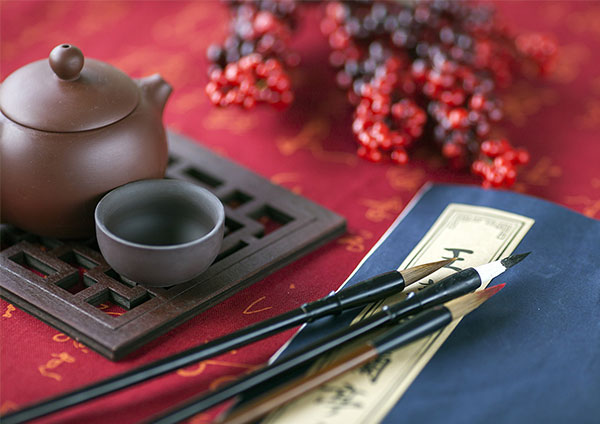Charm is the key to art regardless of North and South
Time 2019-11-12
Jiang Kun, a famous artist, led his disciples to Dongguan for the first time. What is the growing soil of crosstalk in Dongguan or even Guangdong? How does he comment on Guangdong quyi culture? For this reason, this newspaper interviewed Jiang Kun.
Focus 1 proposal suggests learning traditional culture
Nanfang Daily: not long ago, the national "two sessions" just ended. As a member of the CPPCC National Committee, you have been cheering for the development of opera. What proposal has been submitted this year?
Jiang Kun: I submitted two proposals this year. The first proposal is to learn from Guangdong and propose to set up a "poverty alleviation week" throughout the country, so as to cultivate the concept of public welfare of the people of the whole country. The second is to strengthen the traditional cultural education, carry forward the traditional cultural spirit of "courtesy, integrity, loyalty, filial piety, benevolence and righteousness", "power, wealth, and immorality" and "worry about the world first", and root it in the hearts of Chinese people.
In fact, learning traditional culture is a subtle process, rooted in personal character and self requirements. Leading cadres should take the lead in learning first, which is embodied in cadre system assessment, training system or civil servant examination.
Focus 2: there is no difference between North and South in quyi
Nanfang Daily: how to evaluate Guangdong's quyi culture?
Jiang Kun: compared with other parts of the country, Dongguan and even Guangdong's quyi have two very significant characteristics, which are not found in other places.
First of all, the self entertainment function of traditional folk art is particularly prominent. In places like Dongguan, Zhanjiang and Panyu, the "private partnership" of Cantonese Opera is very prosperous, just like Guo Moruo's "thousands of lights and strings". The performance of self entertainment and self entertainment in Cantonese Opera is very distinct. It doesn't have to be performed on stage, but it is an important part of edifying life.
Secondly, immigrant culture is very significant. In cities with a large number of immigrants, such as Dongguan and Shenzhen, the immigrant culture has taken root and flourished. The northern folk art combines the culture of Guangdong, forming a distinctive "Guangdong symbol". "Guangdong symbol" is the fast-paced life, the multi-cultural integration of the sparks, showing a strong flavor of life.
Not long ago, the red thread girl died, and many people went to see her off and mourn. It also shows that Guangdong advocates art and loves art, while cultural people are respected and loved.
Nanfang Daily: there are some cultural differences between the South and the north. The acceptance of crosstalk in the South may not be as high as that in the north. So, how to make the root of cross talk deeper in Dongguan?
Jiang Kun: in 1977, I began to perform crosstalk in Guangdong. At that time, there were not many immigrants, but they were warmly welcomed.
In fact, the cross talk art of North and South has a lot of integration. Since the 1970s, many Cantonese dialects have begun to enter the northern cross talk, such as "you don't know", "qubiandu" and "feizai" dialects, which have become "baggage" in many cross talk. In Yuexiu Park, Huang Junying, a famous cross talk actor from Guangdong Province, has performed cross talk works such as "such a picture" and "Farewell My Concubine".
It can be said that there is no difference between the north and the south in art works. The key lies in whether there is charm. If the charm is enough, it can move people and will be greatly welcomed. For example, many Northerners can't understand the singing of "selling lychees" by hongxiannv, but they also think it's good.
Nanfang Daily: the key to the inheritance of Quyi is the cultivation of talents. How to evaluate Dongguan crosstalk actors?
Jiang Kun: any actor has a growing process. At first, I was just a company propaganda team. Later, when I came to the group's propagandists, I could see Li Wenhua's performance and could not sleep for several days. Step by step, I've come to this day.
Dongguan crosstalk actor Anton Shaoquan is enthusiastic and serious. When I was performing in Shanghai, they used to ask for advice and study, and every time they sent me the excerpts in advance to revise them. They were qualified as the backbone of grass-roots culture.
I think, I hope they exercise at the grass-roots level, step by step. I want to go to Dongguan with them. I can work in Dongguan and create more and better works.
Focus three: Cultural volunteers may not be unpaid
Nanfang Daily: many Dongguan fans want to know, have you created new works recently?
Jiang Kun: no new crosstalk works have been created recently. In May last year, the China Association of literary and art volunteers was officially established, and I served as the chairman. For China, the development of culture and art is not balanced, and volunteers with dedication are needed to work for people of different needs at all levels regardless of pay.
Some people misunderstand that cultural volunteers should not be paid. In fact, I don't recommend that cultural volunteers don't get paid at all. According to the three principles of international volunteers, they are voluntariness, dedication and non payment. For example, when international cultural volunteers come to China, they may not be paid, but they are also responsible for their living and travel expenses.


